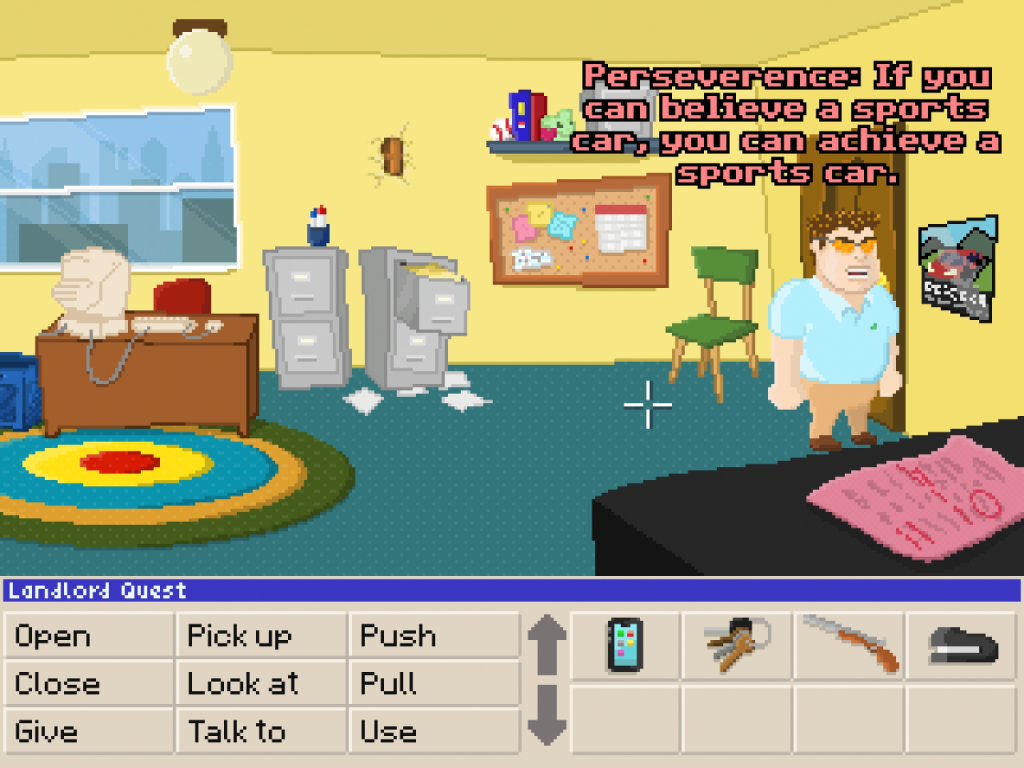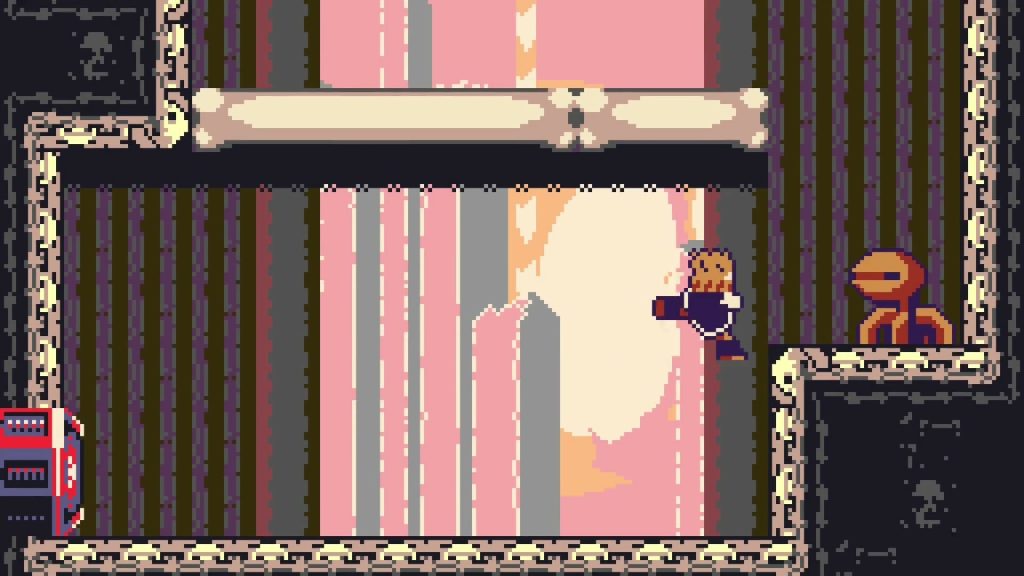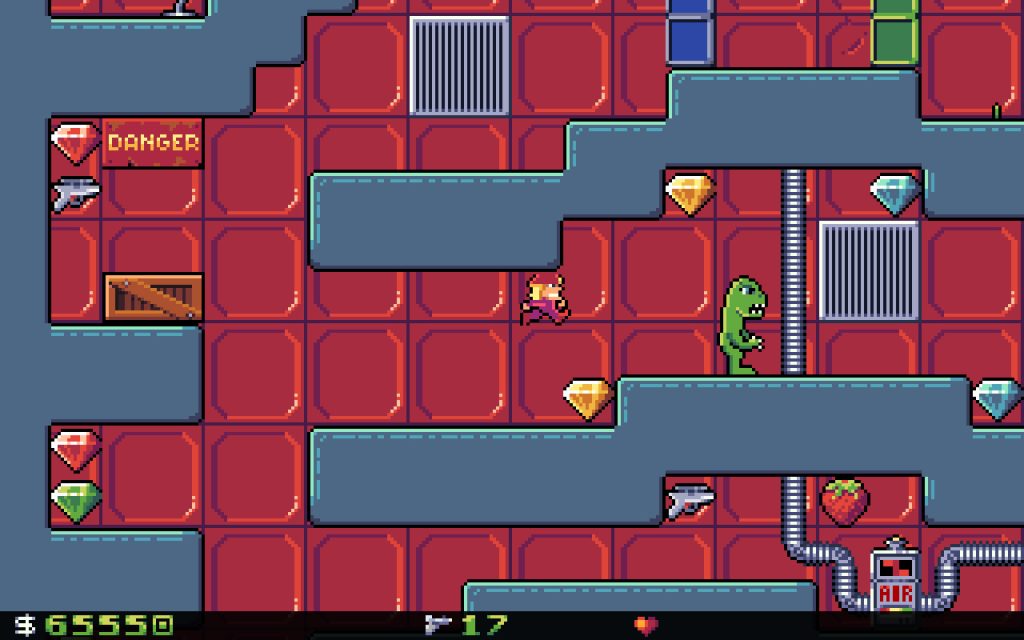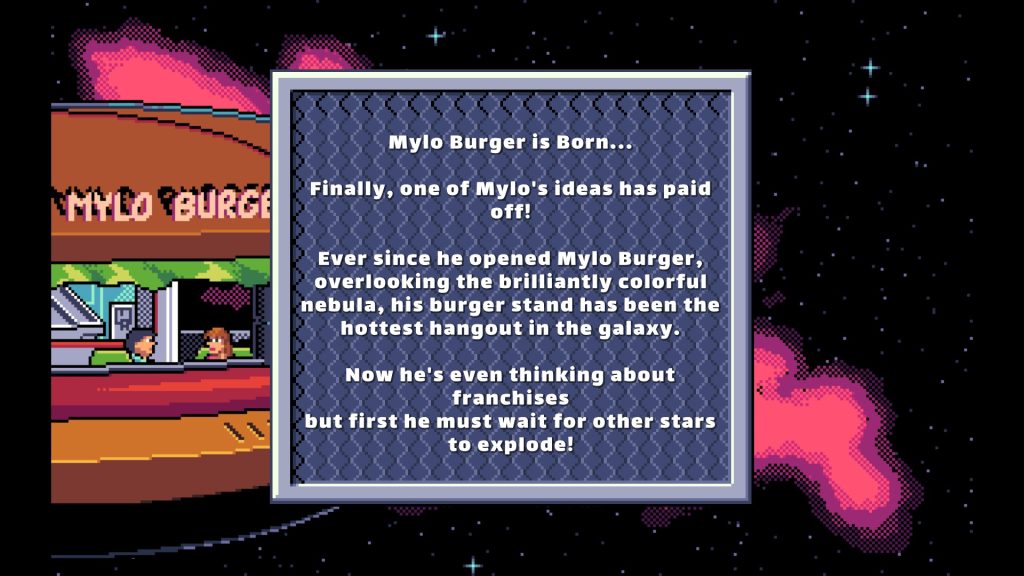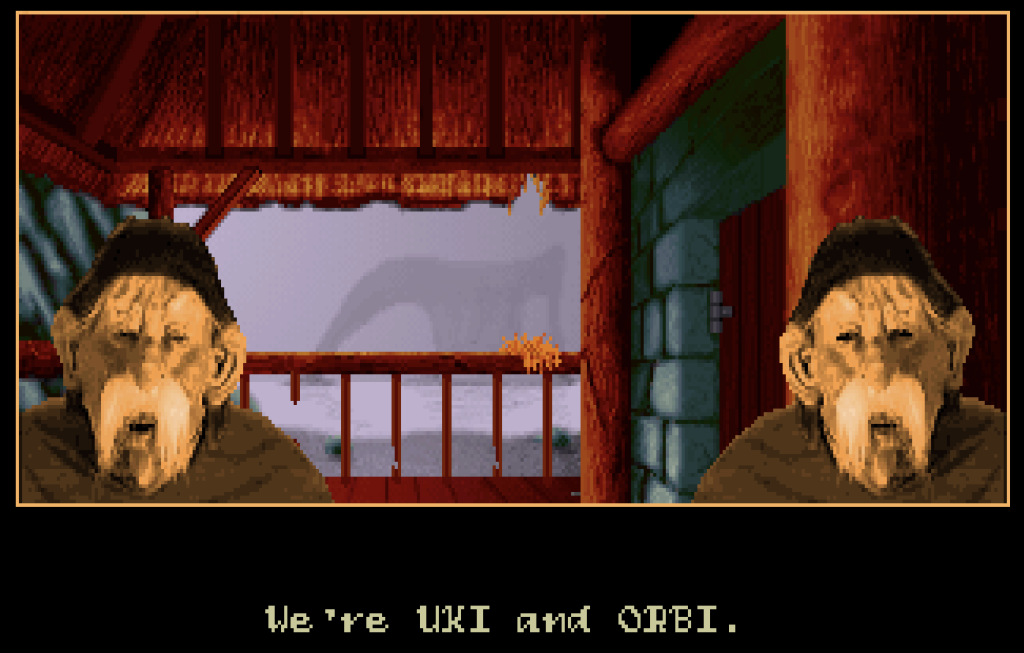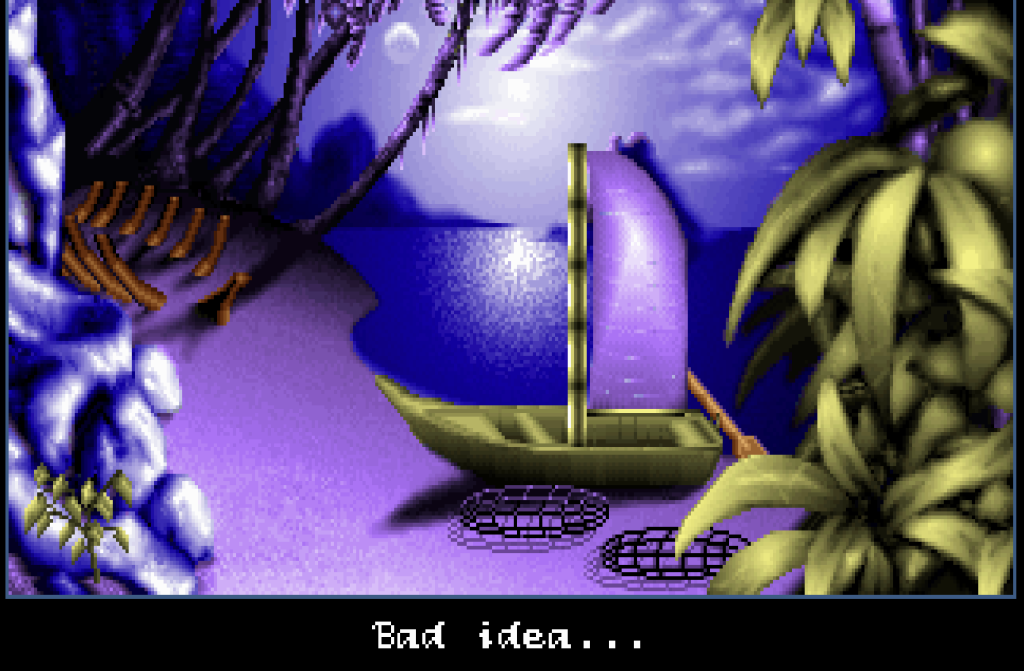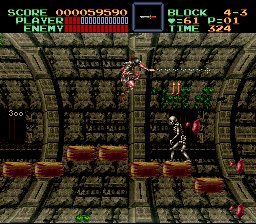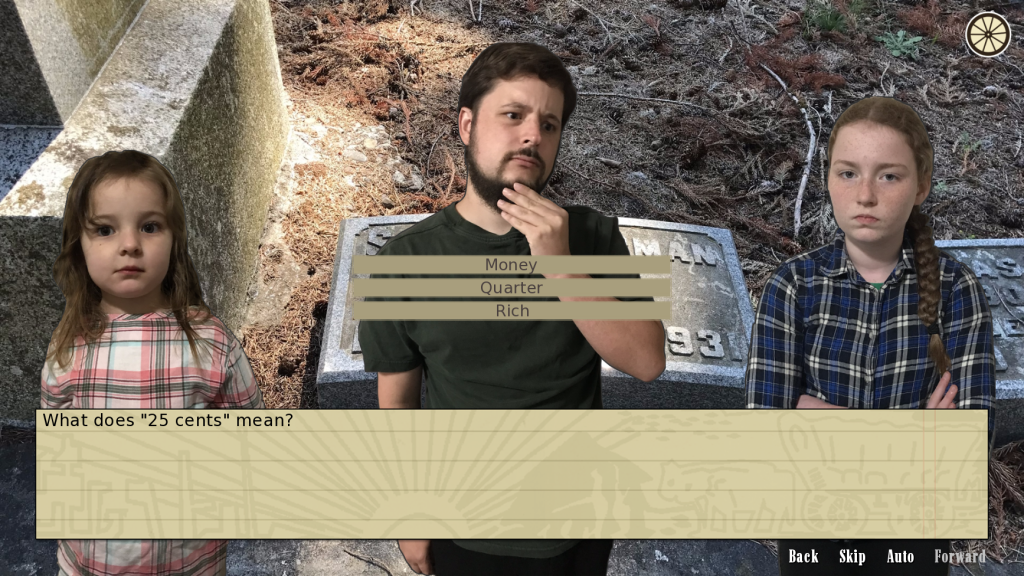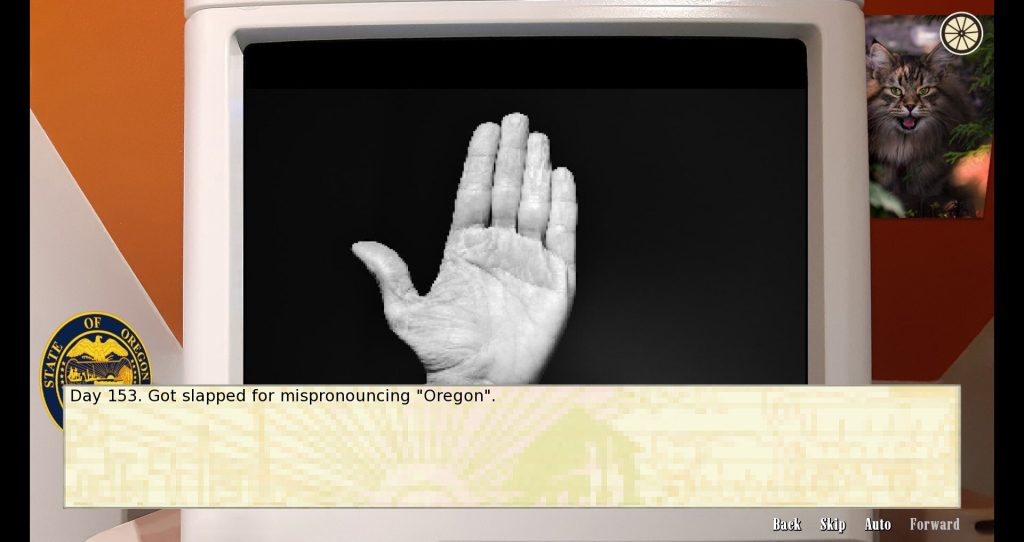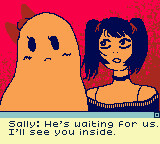Developer: Lucasarts, Nightdive Studios
Publisher: Atari
Year: 2025
Genre: FPS
System: Windows
Outlaws is a FPS where you play as ex-Marshal James Anderson, looking to get revenge after outlaws murder your wife and kidnap your daughter. It was originally released in 1997 by Lucsarts and got a remaster from Nightdive. I felt compelled to check it out after The International House of Mojo did a negative review of it. Much like that reviewer, I remembered enjoying it. Was it really that bad? I had access to the remaster through Steam Family Sharing so I thought I would give it a shot and the TLDR is: meh. It’s not as bad as the review says, but also not as great as I remember either.
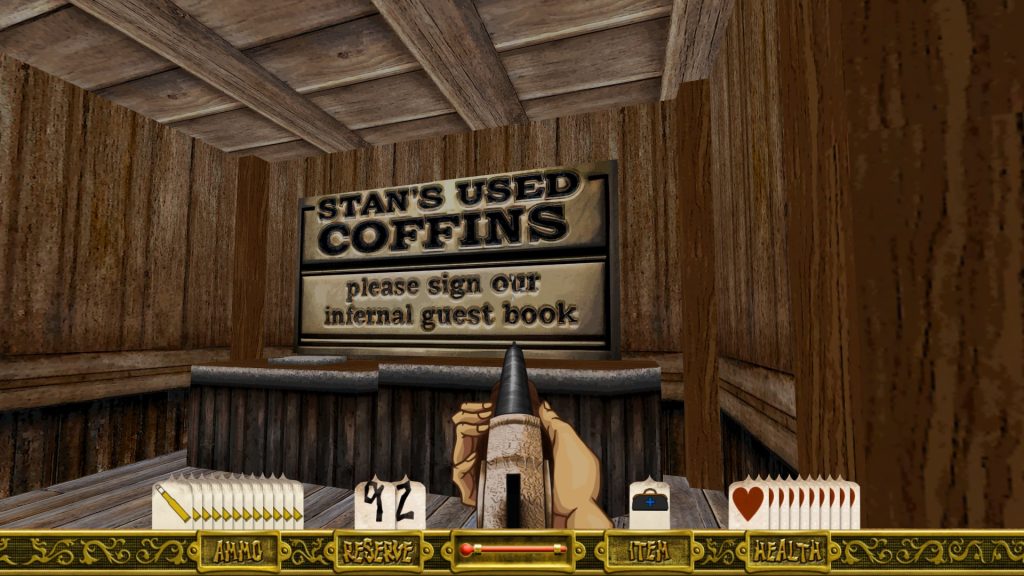
I should probably talk about the good stuff first. The cutscenes and soundtrack are amazing. At this point in the life of Lucasarts, we were just starting to see them wind down on doing 2D animation in their games and cutscenes. Curse of Monkey Island also comes out in 1997, but I believe after this year they move fully into 3D and keep moving further into being a company that just makes Star Wars games. They still make quite a few good games after this point, I’m a huge fan of Grim Fandango (1998) and they continue making good Star Wars games, but to a certain fan we’re starting to reach the end of the line for the company. But Outlaws does an outstanding job using these cutscenes to tell the story between levels, and they look great. It’s probably the thing that keeps people thinking about the game. The soundtrack is great as well. It’s by Clint Bajakian and perfectly replicates the feel of classic westerns. I think anyone who is a fan of the game will tell you it’s the presentation that really wins them over.
The game itself feels very good to play. It’s built on the engine used for Dark Forces, so everything feels very solid. The weapon selection isn’t too bad either. It’s a little repetitive with the number of shotguns it offers you, but they did everything they could with the setting they had to work with. It’s built on a very solid foundation, so the game controls very well.
I think where the game starts to run into issues is the level design and mechanics of the game that it has to stick to due to the nature of it being a Western. The level designers did the best they could, but you can only do so much in a world design that still needs to be grounded in reality but plays like a fast-paced shooter. You’ll have very small towns or giant buildings like sawmills that you need to explore, but progress needs to be gated somehow and the only real option they have is from having locks and keys. They had a very limited number of design choices to choose from and it ultimately makes the game feel very repetitive. They tried to mix things up by having you on a moving train at one point, which I always love in FPS, and cliffs in another, which helps. The one level where it starts to get less grounded and you’re doing puzzles while sliding down streams in a lumber mill is my least favorite one, so maybe my theory is wrong. But Lucasarts had great level design in all of their other FPS, and the same folks worked on those, so that’s what I’m going to blame.
Due to it being a western you’re also just stuck fighting the same types of enemies repeatedly. Some may have shotguns or rifles, but there’s not a whole lot they could have done. There’s a boss enemy at the end of each level which is generally just a stronger person with a gun who may shoot faster, but I think those are still neat. They also have you shoot at big spiders at a few points which I absolutely hated as a kid. It’s still an odd thing. But that’s what I mean about them only being able to do so much, it’s a western so you’re shooting at various guys with guns and that’s it. The Mojo review mentions the enemies being very dumb and yeah, they are. They mostly stand there or pace back and forth, and sometimes shoot in the wrong direction, which was odd even at the time of the original release. Since the game was released in the 90’s, there was at least some awareness that the tropes in westerns could be very racist, so they avoid most of that, but not always! The brief moments where they run into those are not great. Most people don’t read manuals but I didn’t really care for the descriptions of some of the boss enemies either.
I think the remastered bits are perfectly fine. The new art for the enemies is built on the concept art and generally fits in ok with the rest of the 2D art in the game. The original game uses prerendered sprites of 3D models which I think can be charming, but I can’t imagine anyone new to the game preferring that over the remastered artwork. Luckily you can just enable and disable whatever you want, so it’s hard to see anyone getting mad over the new artwork. It also remaps the keys to fit in more with the control schemes of modern FPS, but I think there’s mods for the original game that can do this too? The only real part of the remaster that I got excited about was all the bonus materials showing concept art and other behind the scenes materials. It’s nice to see all of this here and preserved. If there’s a reason why you would pick this version up over the old one on GOG, it’s probably this.
I guess where I come down on Outlaws is that the game and remaster are fine. I think the other FPS by Lucasarts such as Dark Forces and Jedi Knight are much better due to how much more freedom they had in their design, but I wouldn’t call it a bad game either. I know that’s just a huge ringing endorsement for this game. I would have a very hard time telling people they should pay $30 for this, but if you ever see it on a deep discount and you have nostalgia for the original game then yeah, maybe you would enjoy revisiting the game. Sometimes you just shrug after playing a game and go “that was alright.”
Outlaws + Handful of Missions: Remaster is available on PC (Steam, GOG), PlayStation (PS4, PS5), and Xbox (One, Series X|S).


